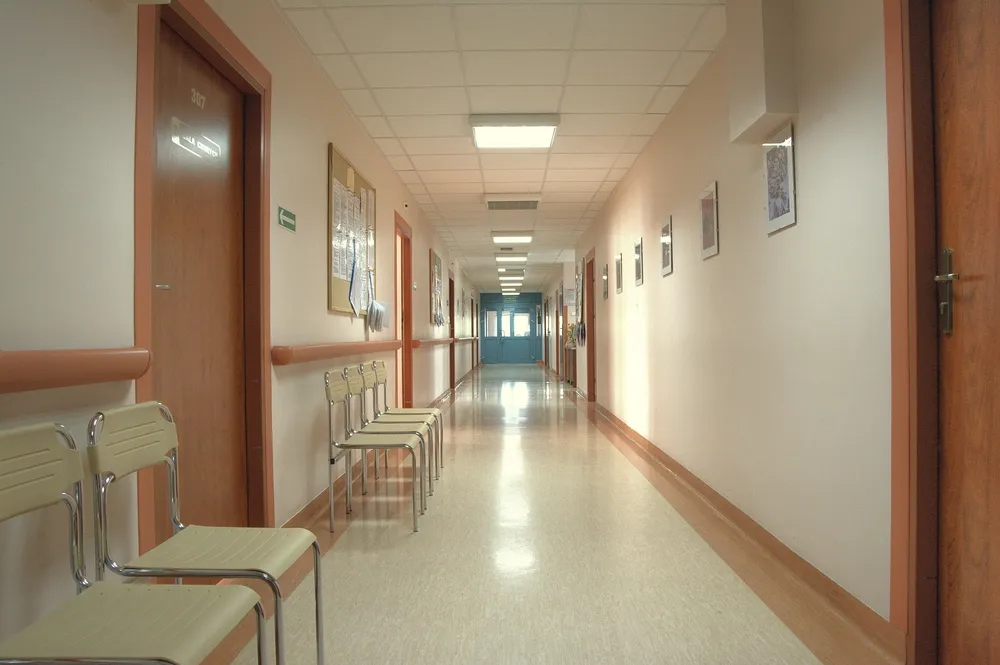Wisconsin First Among Great Lakes States For Women’s Health Care
But the underlying data tells a more complicated story.
At a time of increasing women’s health care disparities across the country, Wisconsin ranks in the top 25% of states for women’s health and is first among five Great Lakes states, according to a new analysis.
The report singles out the Badger State especially for the quality of care in the state and the attention paid to prevention. But Wisconsin’s record is considerably worse on reproductive health care outcomes, the report’s authors find, ranking 23 out of 50 states and the District of Columbia.
The findings are in the 2024 State Scorecard on Women’s Health and Reproductive Care produced by the Commonwealth Fund, a nonprofit research and policy organization focusing on improving health care access, quality and efficiency, particularly for the most vulnerable: people of color, people with low incomes and the uninsured. The report was released Thursday.
“Looking across states and comparing their health care systems is an important way of telling us what is and isn’t working in American health care,” said Sara R. Collins, the study’s lead author and vice president for health care coverage and access at the Commonwealth Fund.
The data used to compile the report largely comes from 2021 and 2022 — much of it from before the U.S. Supreme Court’s 2022 decision to overturn Roe v. Wade, “which has significantly altered access to critical reproductive health care services,” the Commonwealth Fund announcement of the report stated. Access to abortion care is a significant component of the Commonwealth Fund’s assessment process.
“The scorecard’s findings are deeply concerning and underscore the urgent need for federal and state policies to expand women’s access to affordable, timely reproductive care and other essential health services, regardless of who they are, what they earn, or where they live,” Collins said.
The report’s scorecard ranks Mississippi, Texas, Nevada, Oklahoma and Arkansas at or near the bottom for their overall performance on access, quality and outcomes in women’s health care. The highest ranking states are Massachusetts, Vermont, Rhode Island, Connecticut and New Hampshire.
“It is disheartening to see the rising disparities in women’s health across the nation,” said Dr. Laurie C. Zephyrin, the study’s coauthor and Commonwealth Fund senior vice president for advancing health equity.
“Our country’s fractured landscape of reproductive health access will make it even more difficult to close these widening gaps, especially for women with low incomes and women of color in states with restricted access to reproductive care,” Zephyrin said. “Instead of limiting care, federal and state policymakers should work to ensure that women have access to the full continuum of care throughout their lives.”
The report evaluates states on 32 data indicators: 12 for health outcomes, eight for coverage, access and affordability and 12 for health care quality and prevention.
Wisconsin ranked No. 4 on measures of health care quality and prevention in the report, which highlighted the state’s record for use of preventive care, care for women before and after giving birth and mental health screening.
The state ranks 16 for coverage, access and affordability, boosted by relatively high levels of insurance coverage among other factors.
On health and reproductive care outcomes, however, Wisconsin ranks 23. While that is lower than the state’s rank on other categories, the state’s standing was helped by lower rates of maternal mortality and mortality from all causes, among other factors.
Thursday’s report does not break out maternal mortality rates by race, but other research has shown that maternal death rates in Wisconsin are much higher for Black patients than for white patients.
Because the data was collected before the 2022 abortion ruling, the report also doesn’t take into account the fact that Wisconsin lost all abortion care for about a year and a half. Services were restored earlier in 2024, but access is limited to three clinics statewide.
Wisconsin has especially high rates of up-to-date screening for colon cancer and breast cancer and a low rate of births in which parents had to pay out of pocket, according to the report, all beneficial to the state’s overall ranking.
The state performed worse compared to other states in the number of adult women reporting poor mental health (ranking 39), in the number of abortion clinics relative to the population of women ages 15 to 44 (ranking 40), and in the number of adult women who have ever been tested for HIV or AIDS (ranking 43).
Wisconsin picture is mixed in report finding greater disparities in women’s health care was originally published by Wisconsin Examiner.






















